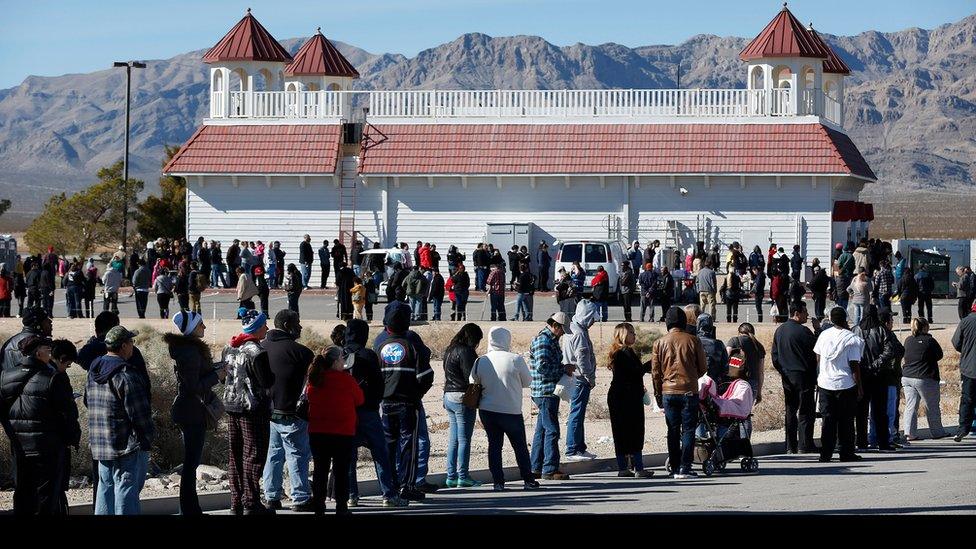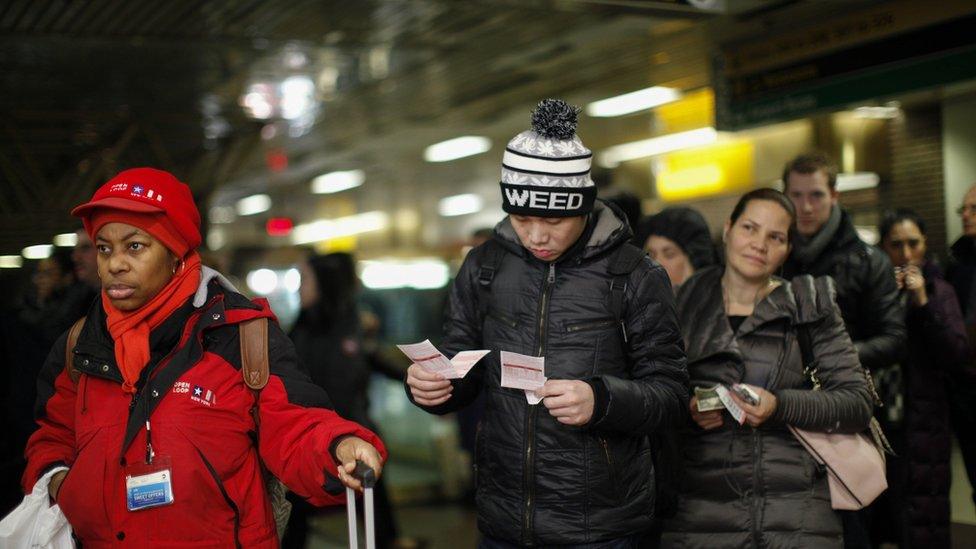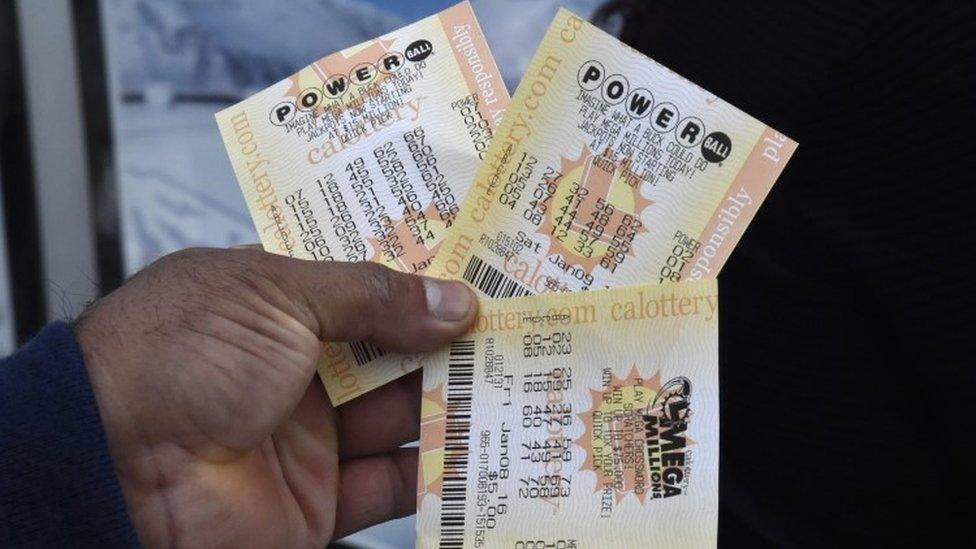US frenzy for world's largest lottery draw
- Published

The Nevada ban on playing meant there were long queues inside the California border
Thousands are queuing up outside shops across the US to buy a chance to win the world's biggest lottery prize.
The US Powerball lottery has grown to $1.5bn (£1.04bn) ahead of Wednesday night's draw.
Extra staff have been brought in at many shops, as customers hope to defy the odds of 292.2 million to one.
The last draw on 9 January was the 19th without a grand prize winner, which requires all six numbers to match.
The winner - assuming no split in the prize - stands to take home the jackpot in annual payments over 29 years. He or she could also opt for one smaller payout of $930m.
The government would share in the big prize, however, levying a 39.6% federal income tax on the winner, plus any taxes that the winner's home state may impose.
After paying tax, however, the winner would still be wealthier than Beyonce and Lionel Messi, according to Agence France Presse.
What could the winner buy?

Follow the money
Is this really the biggest?
The current $1.5bn jackpot is a whopping $600m more than previous record holder. A March 2012 drawing of the US lottery Mega Millions had a $656m prize shared by three winners. In Europe, the largest lottery prizes have been lower than in the US but the jackpots are given as a lump sum rather than as an annuity and most countries do not tax the winnings. The biggest European prize was won in July 2011 by a ticketholder in the UK. That person took home a lump sum of $260m (£161.7m).
Where do Powerball profits go?
Back to the participating states. For example, New Jersey has sold more than $50m in tickets during this current jackpot craze and lottery officials said about $20m of that would return to the state. More than 15 states use the profits to fund education. However, schools aren't expecting a huge windfall. California officials estimate the lottery money accounts for about 1% of the state's education budget. In Wisconsin, the profits go towards lowering property taxes.
How did the jackpot get so big?
No one has won the draw since 4 November. The prize is based on ticket sales so high jackpots usually create a snowball effect until a winning combination is picked. A new format introduced in October makes these massive jackpots more likely, meaning more records could be broken in future.

Across the country, shops selling tickets have faced a frenzy of customers and the rush has forced managers to boost staffing to reduce queues.
Shopkeepers are hoping for a boost in other sales from the lottery mania, with people opting for a snack or drink while waiting for their lucky numbers.

Six of the 50 US states do not participate in the lottery, forcing some of their residents to drive hours to buy tickets.
Alabama, Mississippi and Utah cite religious reasons, while Alaska has said it would not be economical in such a sparsely populated state.
In Hawaii, proposed legislation to start it fails consistently and in Nevada the lottery is rejected because the state's world famous casinos prefer not to have competition.
Nevertheless, residents in these states are itching for tickets.
The Multi-State Lottery Association, which manages Powerball, has said some of the largest ticket sales come from border cities.
Reports say that residents of Nevada are driving across the desert to California where they have been queuing for hours for a chance to win - a testament to the jackpot's powers of temptation over people who are four times more likely to be killed by an asteroid impact this year, external.
- Published10 January 2016
